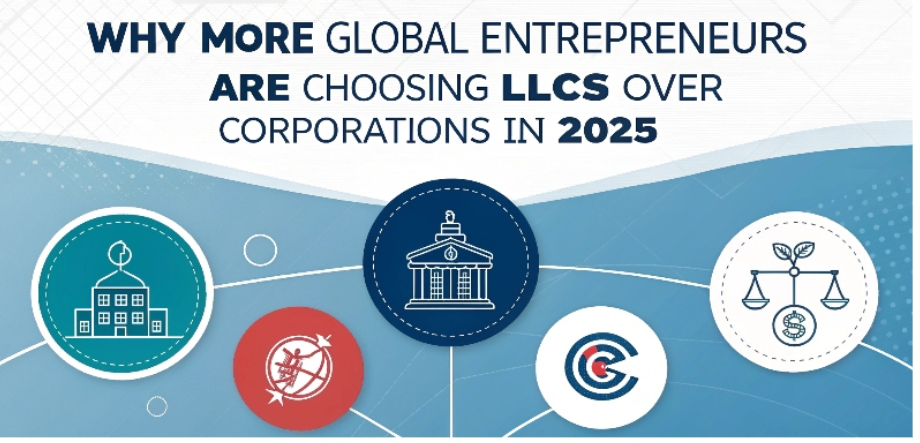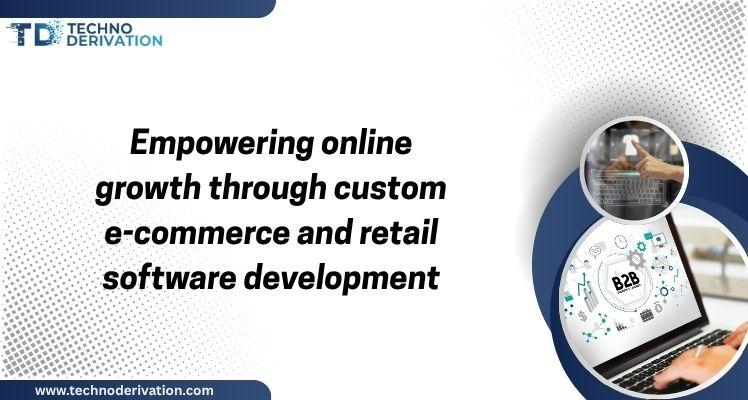The way businesses launch in 2025 is changing fast. Entrepreneurs are skipping traditional corporations and choosing Limited Liability Companies (LLCs) instead. The reason? LLCs offer more freedom, easier rules, and better protection. As the world moves toward remote work, global teams, and online markets, LLCs are becoming the go-to structure. Let’s break down why.
In today’s fast-paced business world, flexibility is everything. Entrepreneurs want structures that adapt quickly to changes whether that means scaling up, bringing in partners, or shifting markets.
LLCs provide this kind of agility. Unlike corporations, which often come with layers of formalities, rigid rules, and heavy paperwork, LLCs let business owners make decisions faster and with fewer restrictions. This streamlined approach appeals especially to startups and solopreneurs who need to move quickly and keep costs low.
Another major draw is the personal protection LLCs offer. Running a business always carries some risk, but LLCs create a legal shield that protects owners’ personal assets from business debts and lawsuits. This safety net means entrepreneurs can take bold steps without risking their homes, savings, or personal belongings.
For global business owners working across borders and navigating different legal systems, this kind of protection is priceless. It’s no wonder LLCs are becoming the preferred choice worldwide in 2025.
1. Flexibility Is the New Norm
Today’s businesses don’t fit inside a box. Founders are running operations across different countries and industries. LLCs give them the freedom to shape their business how they want.
Corporations come with a long list of formal rules—board meetings, bylaws, and officers. But LLCs? They let you create your own setup using an Operating Agreement. That means fewer rules and more control.
Why it matters: With teams spread around the globe, founders need flexibility. LLCs deliver that without extra red tape.
2. Tax Options That Fit You
Taxes are a big deal for business owners. C-Corporations get taxed twice—once on profits, and again when owners get paid. That’s a deal-breaker for many.
LLCs offer pass-through taxation. That means you only pay once—on your personal return. Plus, LLCs can choose how they’re taxed: as a sole proprietor, partnership, S-Corp, or even C-Corp.
Example: A UK founder with a U.S. LLC pays taxes on personal income, skipping corporate taxes. Simple and smart.
3. Legal Protection Without the Hassle
Business today comes with risks. Data leaks, legal claims, or contract issues can hit hard. LLCs protect your personal assets, your home, savings, and car.

Corporations also offer protection, but with more complexity. LLCs give you a safety net without all the corporate rules.
Why it matters in 2025: More legal threats mean founders need solid protection from day one.
4. Easier Global Reach
Want to serve customers in the U.S. from anywhere in the world? Forming an LLC can make that happen.
Non-residents can open LLCs in most U.S. states without needing a Social Security number or U.S. address. Many global founders are using Delaware or Wyoming LLCs to access payment platforms like Stripe or PayPal.
Real example: Entrepreneurs in Brazil and India are launching U.S. LLCs to access better funding, suppliers, and tools.
5. Perfect for Remote and Freelance Teams
In 2025, your team might live in five different countries. That’s the new normal. Corporations often struggle with this setup.
LLCs are built for remote work. You can run everything online—banking, payroll, meetings. Tools like DocuSign and AI-based bookkeeping make it easy.
Why LLCs win: They work well for online, location-free teams without slowing you down.
6. Lower Costs to Start and Run
Corporations cost more to form and maintain. They require board meetings, annual filings, and sometimes big franchise taxes.
LLCs? Much cheaper. You pay a filing fee, create an Operating Agreement, and you’re good to go. Less hassle, fewer expenses.
Pro tip: You can form an LLC with a registered agent service for under $300 in many states.
7. Strong Branding and Credibility
Some people think LLCs are small-time. Not anymore. In 2025, investors and partners will respect well-run LLCs. Many startups begin as LLCs and later switch to a corporation if needed.
Smart move: Create an Operating Agreement that lets you raise funds while still being an LLC.
8. Simple Compliance Rules
Corporations are often watched closely by regulators. Even private ones must keep detailed records and follow strict rules.

LLCs are simpler. Most states don’t require meetings or formal resolutions. That’s less paperwork and more time to grow.
Bonus: Countries like Estonia and states like Wyoming make LLC setup fast and digital.
9. Custom Profit Splits
Corporations split profits based on shares. That’s not always fair or flexible.
LLCs let you divide profits any way you like. If one founder works more, they can get a bigger cut.
Use case: Two partners agree on a 60/40 split even though they own the LLC 50/50. That’s only possible with an LLC.
10. Digital Tools Made for LLCs
Modern software now supports LLCs directly. From banking to taxes, most tools work great with this structure.
AI apps can now auto-sort expenses, predict taxes, and help manage your books with ease.
2025 trend: Fintech platforms now prefer LLCs and offer tailor-made dashboards for them.
Case Studies
1. Tech Pro from Germany
Lina, an IT entrepreneur based in Berlin, wanted to expand her business to the lucrative U.S. market. She chose to form an LLC in Wyoming due to its low fees, strong privacy protections, and business-friendly environment. With her Wyoming LLC, Lina was able to open U.S. bank accounts and gain access to payment platforms like Stripe, which are often unavailable to foreign businesses without a U.S. presence. This setup gave her the professional edge needed to attract and serve American clients seamlessly.
Within just six months, Lina saw her income double. The LLC structure made it easy to manage contracts, receive payments, and handle taxes efficiently. She no longer faced the hurdles of international banking or payment processing, allowing her to focus on growing her IT services. Lina’s story shows how a Wyoming LLC can open doors for international freelancers looking to scale globally with minimal hassle.
2. Kenyan E-commerce Partners
James and Wanjiku, partners running an e-commerce business in Kenya, found themselves limited by local supplier access and advertising options. To grow internationally, they needed a U.S.-registered business. Forming a Delaware LLC became their gateway to the American wholesale market and advertising platforms like Facebook and Google Ads. With their Delaware LLC, they could negotiate better wholesale deals and streamline logistics for faster shipping to customers worldwide.
The Delaware LLC also boosted their credibility with suppliers and ad networks, making it easier to build partnerships and optimize marketing campaigns. Thanks to this setup, James and Wanjiku expanded their product offerings and improved customer satisfaction by cutting delivery times. Their story highlights how an LLC can empower global entrepreneurs to break geographic barriers and build scalable businesses.
3. Fitness Coach in Canada
Derek, a fitness coach from Canada, wanted to grow his online training business internationally. By forming an LLC in the U.S., he was able to hire freelancers from different countries and manage payments through a single legal entity. This streamlined his operations, allowing him to focus on creating high-quality training programs and marketing them to a global audience. His LLC provided the legal and financial flexibility needed for international collaboration.
With his LLC in place, Derek successfully scaled his brand beyond Canada’s borders. He gained access to U.S.-based advertising tools and payment gateways, which helped increase client acquisition. The LLC structure also simplified tax filings and liability protections, making his business more professional and sustainable. Derek’s journey demonstrates how an LLC can be a powerful tool for coaches and service providers aiming to expand worldwide.
Conclusion: Why LLCs Win in 2025
LLCs are clearly leading the way for global entrepreneurs and business builders alike. They offer a perfect blend of freedom, protection, and control that traditional corporations simply can’t match. In an age where speed, flexibility, and global reach are essential, LLCs provide the right framework to innovate without being bogged down by complex regulations or double taxation.
Choosing an LLC means you get to keep more of your profits while protecting your personal assets from business risks. Plus, the ease of formation and management makes it ideal for startups, freelancers, and established businesses wanting to expand internationally. If you’re aiming to grow smart, stay legally safe, and tap into global markets with fewer headaches, forming an LLC might just be the best business decision you make in 2025.
With remote work and digital commerce only growing stronger, the LLC’s advantages become even more compelling. It’s not just a trend—it’s the future of how businesses launch and thrive worldwide. So if you want to stay ahead of the curve, protect your interests, and build something that lasts, the time to consider an LLC is now.
FAQS
1. Can non-U.S. citizens form a U.S. LLC?
Yes, non-U.S. citizens can form LLCs in most U.S. states without being residents. You don’t need a Social Security number to register, although getting an EIN is necessary for tax purposes. Many international entrepreneurs use U.S. LLCs to easily access the American market. This option is especially popular for remote and global businesses in 2025.
2. How does taxation differ between LLCs and corporations?
LLCs benefit from pass-through taxation, meaning the business itself is not taxed, only the owners’ personal income is. Corporations, particularly C-Corps, face double taxation, where profits are taxed at the corporate level and again as dividends. This tax structure makes LLCs more attractive for small to mid-sized businesses. However, LLCs can elect to be taxed as corporations if desired.
3. Is it easier to raise investment funds with an LLC or corporation?
Corporations are traditionally preferred for raising large-scale venture capital due to their stock structure. However, LLCs offer flexibility with ownership and profit sharing through customized operating agreements, making them attractive for early-stage funding. Many startups begin as LLCs and convert to corporations later when scaling. This flexibility suits entrepreneurs looking for manageable growth.
4. What are the benefits of forming an LLC in states like Delaware or Wyoming?
Delaware and Wyoming offer business-friendly laws, strong privacy protections, and low filing fees for LLCs. Delaware is favored for its well-established court system specializing in corporate law. Wyoming provides excellent asset protection and no state income tax. Entrepreneurs choose these states to maximize legal protections and minimize operational costs.
5. What is the typical cost involved in starting an LLC?
Starting an LLC usually costs between $50 and $500, depending on the state’s filing fees and additional services. Registered agent fees and expedited processing can increase the overall price. Compared to corporations, LLCs are generally less expensive and require less ongoing compliance. This affordability makes LLCs ideal for startups and small businesses.
6. Can an LLC have international co-owners or partners?
Yes, LLCs allow co-owners from any country without citizenship or residency requirements. International partners can be added easily, but it’s important to have a detailed operating agreement to clarify roles, profit sharing, and responsibilities. This feature makes LLCs perfect for remote teams and global collaborations. Clear agreements help avoid disputes among diverse owners.
7. Do LLCs issue stock like corporations?
No, LLCs do not issue stock or shares like corporations. Instead, ownership is divided by membership interests as defined in the operating agreement. This allows for more flexible management structures and profit distribution arrangements. While corporations have shareholders, LLC members have more direct control and adaptability.
8. How do LLCs protect personal assets compared to sole proprietorships?
LLCs provide a legal separation between business liabilities and personal assets, meaning owners are generally not personally responsible for business debts or lawsuits. Sole proprietorships offer no such protection, leaving personal assets exposed. This limited liability is a major reason many entrepreneurs prefer LLCs. It helps safeguard personal wealth in case of business risks.
9. Can forming an LLC improve a business’s credibility?
Yes, forming an LLC often enhances credibility with clients, suppliers, and financial institutions. It signals professionalism and commitment, making it easier to secure contracts, open business bank accounts, and obtain financing. Many customers prefer dealing with registered businesses rather than informal sole proprietorships. This added trust can boost growth opportunities.
10. What challenges do global entrepreneurs face when forming a U.S. LLC?
Some common challenges include understanding U.S. tax regulations, obtaining an EIN without a Social Security number, and complying with state-specific filing requirements. Language barriers and time zone differences can complicate communication with registered agents and legal advisors. Hiring professional services can help overcome these hurdles efficiently. Awareness and planning are key to smooth LLC formation.




